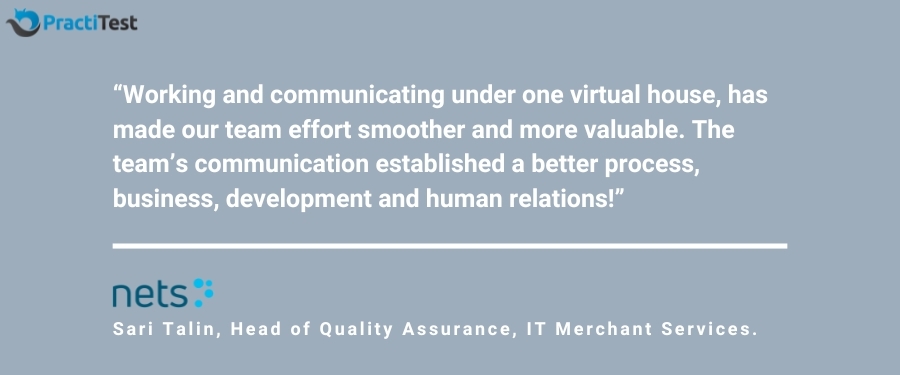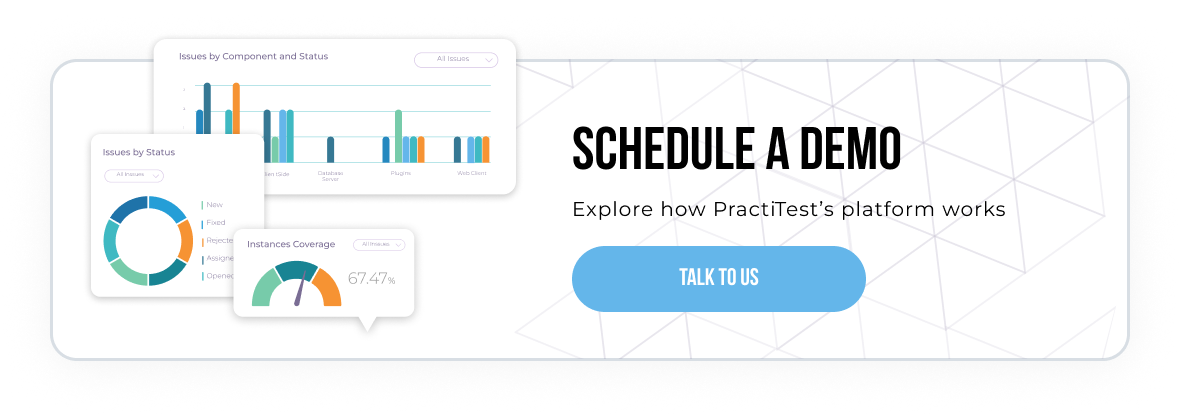Why Finance Companies Should Use a Test Management Platform
In This blog
Remaining at the top of the financial services industry is certainly complicated. This sector is full of strong competitors constantly seeking to evolve and improve their services. Financial companies are expanding their efforts to deliver a first-rate customer experience, and they’re increasingly turning to technology to achieve this goal. In order to meet customer expectations, financial institutions regularly test new technologies by using multiple teams, tools, and methodologies. A central test management platform can substantially assist in managing, controlling, and increasing efficiency.
Here are 6 reasons why financial companies should use a test management platform.

Boost Competitiveness
Expanding their customer base is the primary goal of every financial organization, but it’s a challenge due to rising competition. Companies who implement digital transformation and use innovative software solutions will stand out and deliver more value to their customers.
These solutions go hand in hand with modern Agile methodologies that contribute to improving efficiency and releasing better software faster. Using a test management platform will streamline your software testing processes, integrate different automation tools, and accelerate deployment into production. This can result in a significant competitive edge over competitors in attracting new customers.
Enhance Quality and Reliability
A test management platform serves as a single hub to manage, control, and view the entire QA process of an organization. It keeps data organized and allows working in structured ways to increase productivity and ensure full test coverage. By significantly reducing the possibility of missing important test types along the way, the likelihood of finding different critical defects in the software is increased. This helps release higher quality software, minimizing the risk of escaped defects, resulting in higher rates of customer satisfaction.
Ensure High Levels of Security
In a highly regulated industry full of sensitive customer data where even a small defect may cause a negative impact, ensuring maximum security is a top priority. Financial companies must meet regulatory requirements and security audits to verify compliance, such as SOC2. Test management tools can assist in meeting these regulatory requirements and maintaining accurate documentation of the entire testing process. This ensures complete transparency for high levels of security.
Improve Collaboration Efficiency
In large-scale financial organizations, various staff members participate in QA efforts. These employees may have different backgrounds, experiences, knowledge, or work in different time zones, as is the case for companies outsourcing QA work. It can be a challenge to communicate with one another and keep everyone aligned with their upcoming tasks.
Using a test management platform as a repository for testing processes can improve collaboration and communication. Staff members are more focused on their assignments, updating their work status in real time, while managers can assign tasks more effectively.
Achieve Maximum Reusability
Large financial enterprises may use similar test cases to test the same functionality for different software or services. Creating a new test plan and test cases costs organizations valuable resources, especially when they are equivalent to test cases that have already been executed. The advantage of managing software testing processes in one central platform is the ability to reuse test cases as often as needed. This enables copying an existing test case across multiple QA projects, saving time and costs.
Gain Full Visibility
Another benefit of a test management platform is the ability to gain full visibility of software testing processes. Since all testing data is documented and stored in one centralized platform, QA managers can easily track the entire software testing status in real time, make informed decisions, and create an effective test plan. They can generate comprehensive reports from within the platform, which provide essential insights about testing elements such as tests, bugs, requirements, and more.
Summary
The financial services industry is faced with the challenges of increasing regulatory requirements, rising competition, and growing customer demand for digital services. To help maintain their competitive edge, financial companies should continue to adopt new technologies and rely on scalable software solutions that support flexible development approaches.
PractiTest test management platform is the trusted solution for financial companies to manage and control QA efforts from planning to deployment. With PractiTest, organizations can track the progression of the testing process, integrate multiple tools, and enhance real-time communications for all stakeholders. PractiTest complies with all security requirements, ensuring safety standards for financial companies are easily met.

























